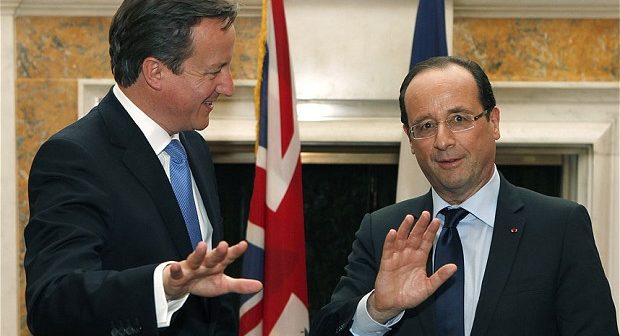
Defeating ISIS in Syria and ousting President Assad are no longer compatible. They never were. The West must make a choice. The following questions can help find the answer:
- Was the Western intervention in Syria about promoting democracy?
- Was it about giving the people of Syria a better future?
- Does the West mourn the loss of life in Syria?
- Is the West prepared to receive more refugees from Syria?
- Is the West capable of redrawing the battlefield picture in Syria?
- Is there any hope that Assad’s ouster will bring to power a truly reformist leadership closer to the West?
The answer to the first three could at best be “not exactly, but … ”. For the rest, it is “no”.
The first Arab spring Western military intervention was in Libya.
On 19 March 2011, a day after the adoption of Resolution 1973, a conference in Paris, held under French, British and US leadership, decided to launch air operations against Qaddafi’s forces to protect the civilians. Within hours air strikes began. It soon became clear that the purpose was regime change.
In a joint op-ed published in mid-April in the International Herald Tribune, Le Figaro and the Times of London, President Obama, President Sarkozy and Prime Minister Cameron declared that they could not allow Libya to become a failed state.
On September 15, 2011, President Sarkozy and Prime Minister Cameron, architects of the intervention, visited Libya on what was called “a triumphal tour”.
Today Libya is a failed state and only President Obama has admitted that the intervention without adequate preparation for the day after was a mistake.
Towards the end of 2011, the uprising against President Assad started turning into a civil war. Unfortunately, the Libya intervention had not proved a lesson yet. In December 2012, the US, Britain, France, Turkey and the Gulf states formally recognized opposition National Coalition as “legitimate representative” of Syrian people. A year later, the US and Britain suspended “non-lethal” support to rebels in northern Syria after “Islamist extremists” seized the bases of Western-backed Free Syrian Army. Thus, the West started having second thoughts about what it could achieve there. But the arrow had left the bow. The rest of the story needs no reminding.
If the people of Syria were told today that the last eight years were nothing but a nightmare and when they wake up, they would go back to the days before the uprising with those years of bloody conflict erased from memory, the vast majority would probably be delighted.
Today Syria is a divided and devastated country and will remain so for decades. Peoples in conflict areas are desperate for security, stability and at least some hope of prosperity. Regardless of their ethnic and confessional differences, political choices the people of Syria are no exception. The only way to achieve that is giving unreserved support to Syria’s political transition, avoiding a conflict between the Geneva and Astana processes which can undermine Syria’s sovereignty, unity and territorial integrity as stipulated in UN Security Council resolutions.
Britain and France have a controversial legacy in the Middle East. The US has a history of military interventions. It is time for them to prioritize multilateral approaches to conflict resolution; to compartmentalize their differences with Russia. ISIS remains a threat beyond Syria and must be confronted with a broad coalition, one that is not only military but also political and multicultural with Muslim countries carrying the flag against ISIS’ ideology. Moscow, perhaps an adversary in some other areas, is a strong ally against ISIS.
When compared with President Obama’s Cairo speech of June 4, 2009, Secretary Pompeo’s remarks at the American University in Cairo on January 10, 2019, underlines a reversal in US policy towards the Middle East, particularly Iran. Pompeo’s trip was designed to reassure US allies in the region. Yet, except for Israel, Saudi Arabia and the UAE, the world prefers to engage Tehran. His targeting of President Obama before a foreign audience in Cairo was appalling, to say the least. EU leaders should be concerned.
The foregoing is not to suggest that the West has a greater share of responsibility for the plight of the Syrian people. President Assad had ten years to launch political reform and he didn’t. He could have taken a softer response to protests and he didn’t. But there are no easy answers to the question “what if he had?” Middle East countries added fuel to the fire instead of containing it. Their involvement encouraged sectarianism, tribalism and warlordism. Besides, while seemingly united on President Assad’s ouster, they were divided on who should be his successor.
Some advocates of the intervention theorize that what may appear today as a mistake can prove to be an act of wisdom in a longer chapter of history. This is a futile attempt to escape blame and will not bring back the half-million dead.
To conclude, Syria’s eight-year war represents a collective failure which requires a collective response.
Ali Tuygan, Ambassador (Ret’d) and former Undersecretary of the Turkish Foreign Ministry. The article is also published on his blog: https://diplomaticopinion.com/2019/01/11/syria-moment-of-truth-for-the-west/









